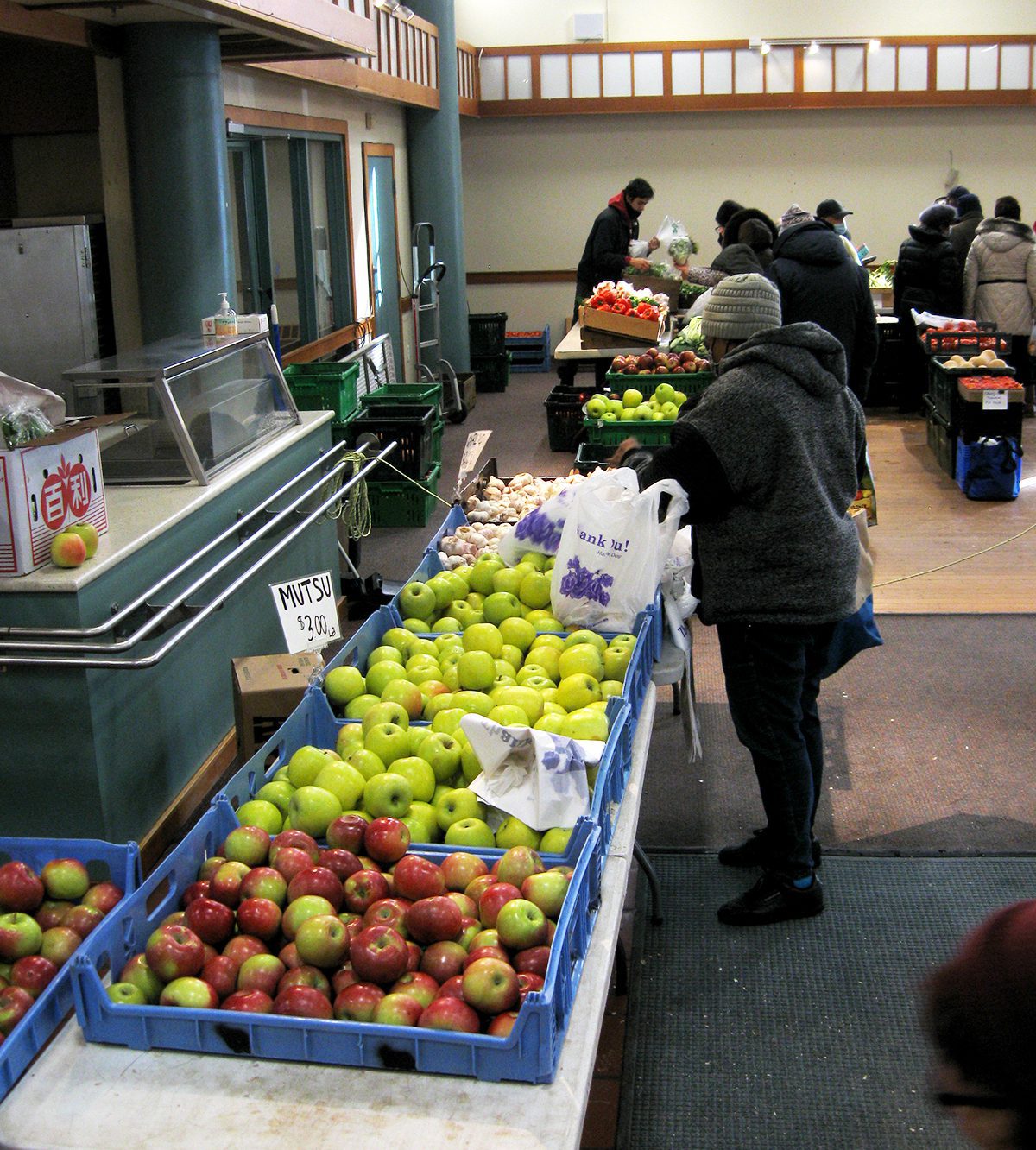LYNN — Two weeks after opening its doors, the Phoenix Food Hub has hit the ground running towards its overarching goals: expanding access to healthy food and knowledge of healthy eating to the community.
Originally constructed as a marketplace in 1916, 8 Silsbee St. was at one time home to the JB Blood Company, which operated in Lynn for around 50 years. More recently, the Greater Lynn Senior Services (GLSS) partnered with the city’s Food Security Task Force, Catholic Charities of Boston and more than 14 contributing non-profits to transform the space into a multifaceted food access mecca.
Dozens lined up on the ground floor of the Phoenix Food Hub Wednesday afternoon to await access to Catholic Charities’ 3,600 square-foot food pantry — just one section of the food hub. Right next door lives a newly installed teaching kitchen, courtesy of a $1.85 million community health grant from Mass General Brigham.
“Somebody that goes to a food pantry and gets food, that’s the first step in the process. But if you don’t have access to a kitchen to cook the food, or if you don’t have the knowledge and skill set to be able to cook the food, then it really just, it’s all for naught, it goes to waste,” Salem Hospital Director of Community Health Tina McLoughlin said. “We want to be able to provide the community with a place where they can learn from chefs from all different ethnic backgrounds how to prepare fresh produce in ways that are culturally relevant to the residents of Lynn.”
McLoughlin said that by supporting the Phoenix Food Hub, Mass General physicians can better assist patients facing dietary or nutritional health problems.
“We will be able to refer our patients to this incredible resource in the community,” McLoughlin said. “We know that food is medicine, and that what we eat has one of the most significant impacts on our overall health. By bringing together as many nutrition-related support services as possible under one roof, I think we will undoubtedly achieve measurable improvements in the health of Lynn residents.”
Nick Anander, the nutrition program manager at GLSS, said the one-stop food hub has already seen a wider array of patient referrals from Lynn Community Health Center.
“We had a limited basis on what we could accept for referrals from the Community Health Center, and now it’s become more broad and open. I think we were originally just focusing on hypertension, and now we’re doing more,” Anander said.
Currently, Anander said, GLSS is working to expand its Meals on Wheels grocery delivery program to include non-senior residents. In the future, GLSS plans to use the space to hold weekly winter farmers markets, classes on healthy eating, and cooking demonstrations.
“This is going to be the state-of-the-art teaching kitchen that we’re going to post up to cooking classes, demonstrations, that kind of thing, starting in January,” Anander said.
Since the Catholic Charities’ food pantry opened in October, Anander said the food hub has nearly doubled its meal output over the course of two months.
“We used to do about 250 people — we did 450 last Friday. It just shows that there are so many people that need help in the community, and we hope being here to help them will make a difference,” Anander said.
GLSS Director of Planning and Development Valerie Callahan said that the Phoenix Food Hub came about as a response to the pandemic’s exacerbation of pre-existing food security problems in Lynn.
“The issue of food insecurity was huge during the pandemic. We, at Greater Lynn Senior Services, work with a lot of folks who are vulnerable to begin, and the pandemic just made it that much worse,” Callahan said. “We could see that food and security was a really terrific challenge for all of our populations, in part because of the need for social isolation, but also, because there just wasn’t the economic means to get the food.”
Callahan added that in the next few months, GLSS plans to introduce a database system called Apricot to better track the progress of Phoenix Food Hub’s program participants.
While the newly founded food hub has already seen an influx in volume, Callahan said the program has only just started its growth.
“There’s lots of different rivers of change happening through this, and we’re at the very beginning on all of them,” she said.

